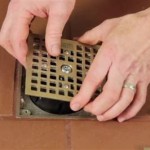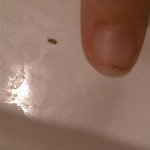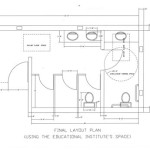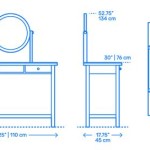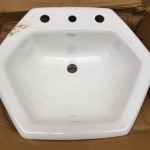How to Replace Copper Pipes Under Bathroom Sink: A Step-by-Step Guide
Copper pipes are commonly used in older homes and are susceptible to corrosion and leaks. Replacing copper pipes under a bathroom sink is a plumbing task that can be completed by a homeowner with basic plumbing skills. This comprehensive guide will provide a step-by-step process for effectively replacing copper pipes under a bathroom sink.
Tools and Materials Required: - Adjustable wrench - Strap wrench - Pipe cutter - PVC pipe and fittings - Primer and glue - Hacksaw - Teflon tape - Plumber's putty - Basin wrench - New copper pipes (optional)
Safety Precautions: Before beginning, turn off the water supply to the sink. Open the faucet handles to release any residual water in the pipes. Wear safety glasses and gloves for protection.
Step 1: Disconnect the Water SupplyUse an adjustable wrench to disconnect the water supply lines from the angle stop valves under the sink. The angle stop valves are typically located at the base of the sink and control the flow of water to the sink.
Step 2: Remove the Old Copper PipesCut the copper pipes using a pipe cutter. Place the pipe cutter around the pipe and tighten it until the pipe is completely severed. Remove the cut copper pipe sections.
Step 3: Install the New Copper Pipes (Optional)If you are replacing the copper pipes with new ones, cut the new copper pipes to the appropriate length. Apply flux paste to the ends of the pipes and solder them together using a propane torch. For a more permanent solution, you can also use compression fittings to connect the new copper pipes.
Step 4: Assemble the PVC PipesMeasure and cut the PVC pipes to the desired length. Apply primer to the ends of the pipes and then apply glue. Assemble the PVC pipe sections and fittings, holding them together until the glue sets.
Step 5: Connect the PVC Pipes to the Copper PipesConnect the PVC pipes to the copper pipes using adapters. Apply Teflon tape to the threads of the adapters and hand-tighten them onto the copper pipes. Use a strap wrench to further tighten the connections.
Step 6: Replace the Angle Stop ValvesIf the angle stop valves are old or damaged, it is recommended to replace them. Wrap Teflon tape around the threads of the new angle stop valves and screw them onto the copper pipes.
Step 7: Reconnect the Water SupplyReattach the water supply lines to the angle stop valves. Use an adjustable wrench to hand-tighten the connections. Slowly turn on the water supply and check for leaks. If any leaks occur, tighten the connections further.
Step 8: Apply Plumber's Putty and Reinstall the SinkApply a bead of plumber's putty around the base of the sink drain. Place the sink over the drain and press down firmly. Use a basin wrench to tighten the nuts that hold the sink in place.
Step 9: Test the New PipesTurn on the faucet and check for leaks. If there are no leaks, the copper pipe replacement is complete. Allow the water to run for a few minutes to flush out any debris.
By following these steps, you can successfully replace the copper pipes under your bathroom sink and ensure a leak-free water supply for years to come. Always remember to take necessary safety precautions and consult professional assistance if you encounter any unexpected issues.
How To Clean Copper Pipes Under The Sink

Copper To Cpvc A Plumber S Perspective Flowguard Gold

Bathroom Sink Plumbing Installation Diy Montreal

How To Replace Old Bathroom Faucet Doityourself Com Community Forums

How To Clean Copper Pipes Under The Sink
Replace Bathroom Sink Drain Diy Home Improvement Forum

Change Out Old Bathroom Faucets Copper Pipe Water Lines

How To Install A Vessel Sink Faucet
How To Connect Metal Pipes Under A Sink Quora

Bathroom Sink Plumbing Installation Diy Montreal
Related Posts

